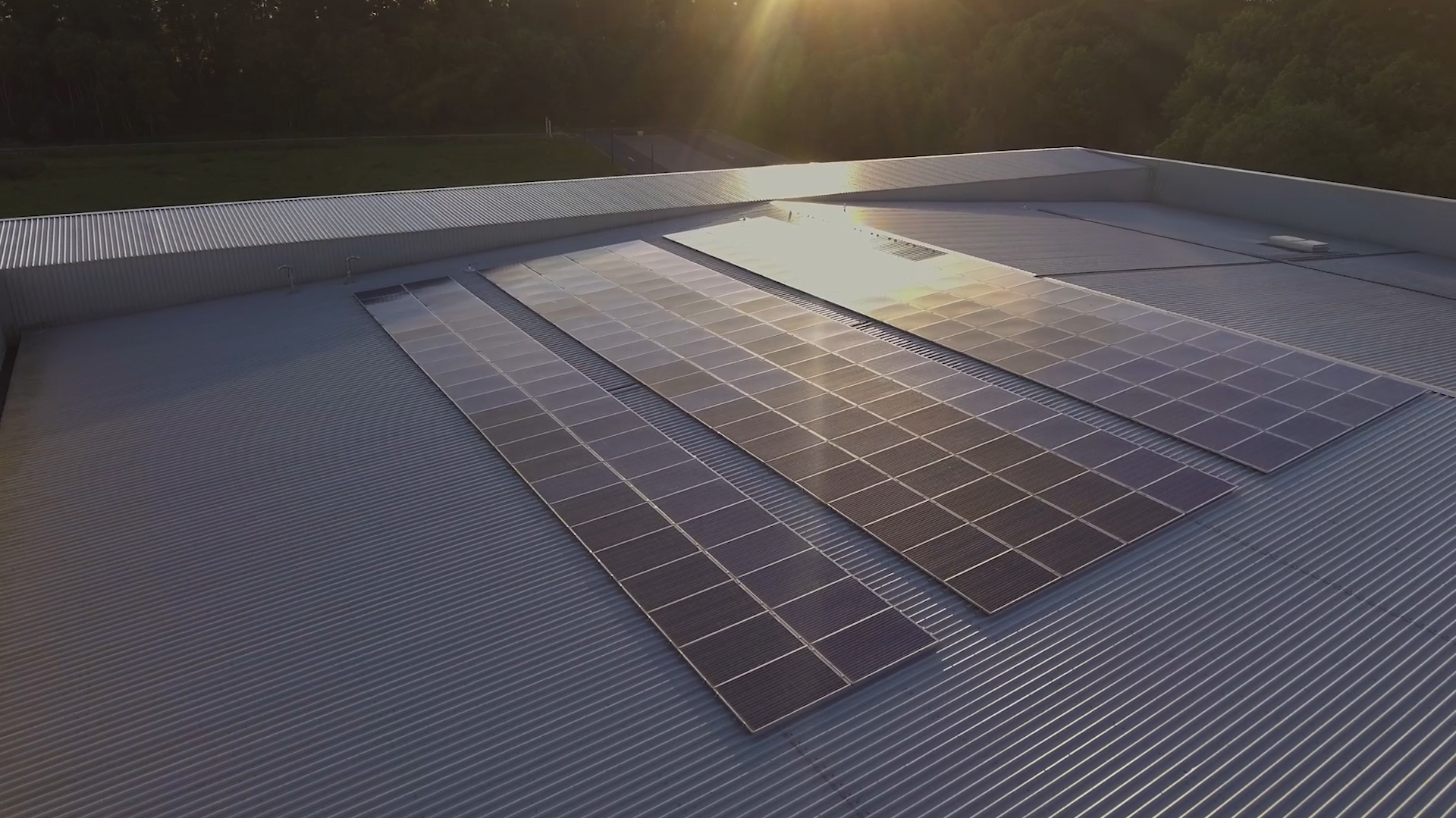With this year’s Earth Day fast approaching leading laser manufacturer Luxinar is also making a positive mark on the environment. Luxinar’s UK headquarters is custom designed with energy conservation in mind and its CO2 lasers are sold worldwide for a variety of environmentally friendly applications.

Image Credit: Luxinar
Eco-friendly building in a green location
The Luxinar manufacturing site in Kingston upon Hull, UK is equipped with a number of energy efficient measures to help reduce the company’s carbon footprint, including solar panels to generate a portion of its electricity needs, process water to heat the factory in winter and ambient temperature to cool the process water. Sensor-activated LED lighting is installed throughout the factory and the company operates a full recycling programme. Electric car charging is also provided and Luxinar staff can participate in a cycle to work scheme.
The Luxinar facility is located at Bridgehead Business Park, a development designed with environmental considerations in mind. Sustainable building techniques have been employed in the construction of the business park, which includes an area of woodland with a nature trail managed by the Yorkshire Wildlife Trust. The woodland, which is popular with employees of the business park and local visitors, features bird houses and sculptures as well as an insect hotel that was presented to Luxinar by its Belgian supplier HTMS.
Developing sustainable jeans
Surface-altering techniques such as stone washing and bleaching are often used in the finishing stage of the jean making process for effects like fading, tearing and patterning. However, these processes pose problems due to the high volume of chemical and water use and the toxic nature of the harsh chemicals needed. Jeans manufacturers such as Levi’s are developing sustainable jeans that use organically grown cotton, vegetable dyes, waterless production and lasers to create styles and designs.
Laser processing is a more eco-friendly alternative as it allows the denim industry to create the same effects without damaging the texture of the material and with dramatic reductions in harmful toxins and carbon emissions. Luxinar currently supplies around 80% of the CO2 lasers used by the jeans market.
Food marking to reduce packaging
Lasers can be used to mark products in an environmentally friendly way by avoiding the need to use labels, glue or packaging. Global retailer Marks & Spencer hopes to save 10 tonnes of paper and 5 tonnes of glue every year by directly laser marking their fruit and vegetables with the M&S logo, best before date and product details rather than using a label.
Laser coding reduces carbon footprint in the packaging industry
CO2 laser coders can be used as a replacement to inkjet printing to apply text, graphics and bar codes to a wide variety of packaging materials including glass, plastics, wood, paper, card and painted metals. Not only does this eliminate the need for ink, solvents and chemicals, but it also reduces plastic waste in the form of empty cartridges.
A sustainable supply chain
Transport remains the biggest contributor to greenhouse gas emissions in the UK (source: Department for Business, Energy & Industrial Strategy). To tackle this, Luxinar’s suppliers are mainly UK based, with many located in the Hull area, and the company is increasing local sourcing by partnering with initiatives such as The Supply Chain Network https://www.thesupplychainnetwork.co.uk/. Luxinar has also hired a Supplier Development Engineer to focus specifically on developing core skills within the supply base.